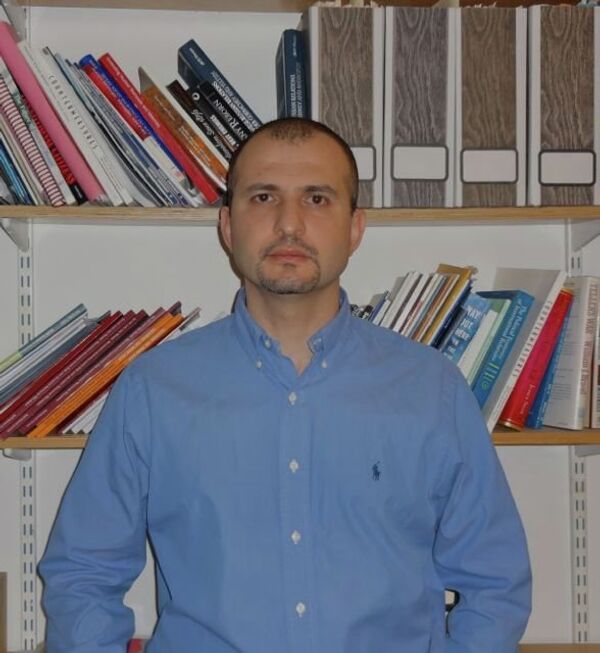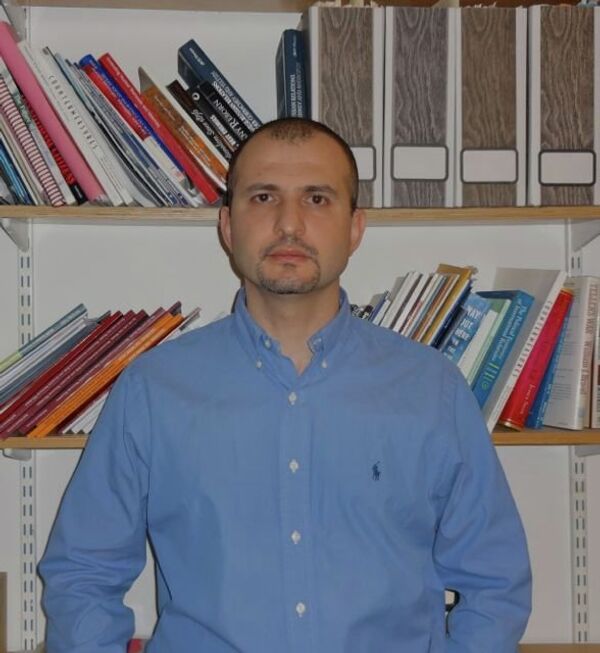My belief in serendipity has been renewed by US Secretary of State John Kerry’s offhand suggestion on September 9 that Syrian President Bashar Assad could avert US military strikes by “turning over every single bit of his chemical weapons to the international community in the next week.”
That remark, which came in response to a question from a CBS reporter in London, might have been something Kerry had not quite thought through, given how quickly his subordinates in Foggy Bottom sought to discount the remarks, arguing that their boss was making a "rhetorical argument about the impossibility and unlikelihood of Assad turning over chemical weapons he has denied he used."

Gaffe or not, Kerry’s Russian counterpart Sergei Lavrov instantly saw an opportunity and jumped at it. (In fact the veteran diplomat did so at such lightning speed, that I would have thought the question had been orchestrated from Moscow if it were not for the fact that an American journalist, not a Russian one, asked Kerry whether “there is anything at this point that his [Assad’s] government could do or offer that would stop an attack.”)
Within hours of Kerry’s off-the-cuff remark, Lavrov didn’t only produce a proposal to engineer a transfer of Assad’s chemical arsenal to international custody for subsequent disposal, but also had visiting Syrian Foreign Minister Walid Muallem admit his government had chemical weapons (CWs), pledge to give them up and even agree to join an international treaty that prohibits such weapons.
“Syria welcomes the Russian proposal” and is “ready to cooperate fully … particularly given that we want to become a signatory to the Chemical Weapons Convention,” Muallem said in Moscow. An international flurry of endorsements of the fledgling plan followed with China and Iran among the first to heap praise on the Russian diplomats’ initiative.
The Obama administration adopted a more cautious approach – even though, in my opinion, the American president should be grateful to Russia for giving him a reason to urge Congress to postpone its vote on his idea to bomb Syria over a CW attack that reportedly killed over 1,000 outside Damascus on August 21. Had Obama not called for the delay, he would have most likely seen American legislators reject the idea of punishing Assad’s regime with bombs and missiles for its alleged complicity in the attack. (In fact, given Obama’s voting record on the US military campaign in Iraq as a senator in 2005-2008, he may have opposed such use of force if still a legislator himself.)
But even if Obama were to ignore the opinion of most national legislators and the general public, chances are the American bombs and missiles, in spite of their deadly precision, would have failed to wipe out Assad’s CW cache. Given the copious advance warning Assad has received from Obama on the US intention to strike, the Syrian dictator has probably already dispersed his arsenals.
Obama, of course, would follow up on initial strikes by expanding use of force to coerce Assad into refraining from using CWs again. My senior colleague, and a former assistant secretary of defense, Graham Allison has just published a detailed analysis of how that could be achieved. The article – titled “Beyond Airstrikes: On Syria, Ask ‘What Would the Godfather Do?’” – draws on the coercion techniques of Don Vito Corleone to craft recommendations for Obama in dealing with Assad. Some of them are so forceful that I think even Don Fanucci – Vito’s ruthless archrival at the start of his career – would have remarked “Oh, this is too violent for me!”
For instance, Allison essentially advocates taking out Assad’s wife Asma with missiles to drive the message home. In making the case for such an assassination, Allison notes that acting on Corleone’s orders, gangsters decapitated a producer’s favorite racehorse and put its head in bed next to him as he slept. He also recalls how President Ronald Reagan decided in 1986 to send strike fighters to attack Libyan leader Muammar Qaddafi’s personal tents in the desert, killing his 15-month-old daughter and injuring two of his sons to retaliate for Qaddafi’s role in sponsoring the bombing of a Berlin disco that killed two American soldiers earlier that year. But that bombing didn’t deter Qaddafi from ordering the bombing of an airliner over Scotland two years later. The same way, killing Asma may harden Assad’s resolve to fight to the end rather than deter him from using chemical weapons.
I also think it would be much safer even for America’s own allies, like Israel, if Syrian CWs were removed and disposed of in due fashion rather than destroyed militarily. A recently released study by US scientists suggests that the bombing of Iraq's CW infrastructure by US-led coalition forces in January 1991 led to a dispersion of plumes from explosions to locations more than 500 kilometers away in concentrations that could have caused brain damage.
No one is saying retrieving chemical weapons from Syria would be easy. For one, as Russia’s experience with the disposal of CWs suggests, transporting these agents is hazardous and best avoided even in peacetime, and there is a civil war raging in Syria. Assad would have plenty of opportunity to cheat, given that no one knows exactly how many of these weapons he has or where. And there should be no doubt that Assad wouldn’t hesitate to obfuscate, given how his regime pursued the construction of a plutonium-producing reactor on the Euphrates River, which Israel destroyed in 2007. Or Assad can always claim he was joking when he promised to give up his chemical weapons – just like Kim Jong Il did in 2000 after Russian President Vladimir Putin announced that he has secured a pledge from the North Korean leader to roll back the Hermit Kingdom’s missile program.
But even if fully implemented, the Russian proposal will not become a panacea (or a deus ex machina as American columnist David Ignatius has put it).
Based on existing estimates, chemical weapons account for 2 percent of deaths in the civil war. In the three weeks since the August 21 attack, conventional bombs and bullets have killed more than twice as many people, according to a count done by US officials and reported by Reuters. Nor would Moscow’s plan put an end to the use of chemical weapons in the war if allegations that the opposition also possesses and uses crude CW agents are true. Removal of chemical weapons from Assad’s arsenals would neither stop the war nor end the suffering. Neither would it address the root causes of the conflict, which apparently included deprivation caused by drought.
And yet, Russia’s proposal might be the first step to an internationally mediated resolution of the conflict. Rather than wait and see if the plan fails and then stage strikes that would not bring Syria much closer to the end of war, Kerry should jump down from the fence he has been sitting on, roll up his sleeves and help Lavrov flesh out the CW-removal plan when they meet in Switzerland this week.
Simon Saradzhyan is a researcher at Harvard Kennedy School's Belfer Center. His research interests include international security, arms control,
counter-terrorism as well as political affairs in post-Soviet states and their relations with major outside powers. Prior to joining the Belfer Center in 2008 Saradzhyan had worked as deputy editor of the Moscow Times and a consultant for the United Nations and World Bank. Saradzhyan holds a graduate degree from the Harvard University.
The views expressed in this column are the author’s alone.
View From the Global Tank: Striking Syria May Be Unavoidable – But Mission Creep Must Not Be
View From the Global Tank: Obama-Putin: Now It's Personal?
View From the Global Tank: Our Changing World Order – the More Options for Cooperation, the Merrier
View From the Global Tank: Appointing Rice, Power Won’t Alter Obama’s Policy on Syria, Russia
View From the Global Tank: Missile Defense Need Not Derail US-Russian Relationship
View From the Global Tank: The Last Chance to Prevent a Mediterranean Somalia
View From the Global Tank: Boston Bombing Puts Spotlight on Security Services’ Failure to Cooperate
View From the Global Tank: Europe Ignores Collective Security System Flaws at Own Peril
View From the Global Tank: Why Nuclear Powers Should Start Walking Toward Global Zero



